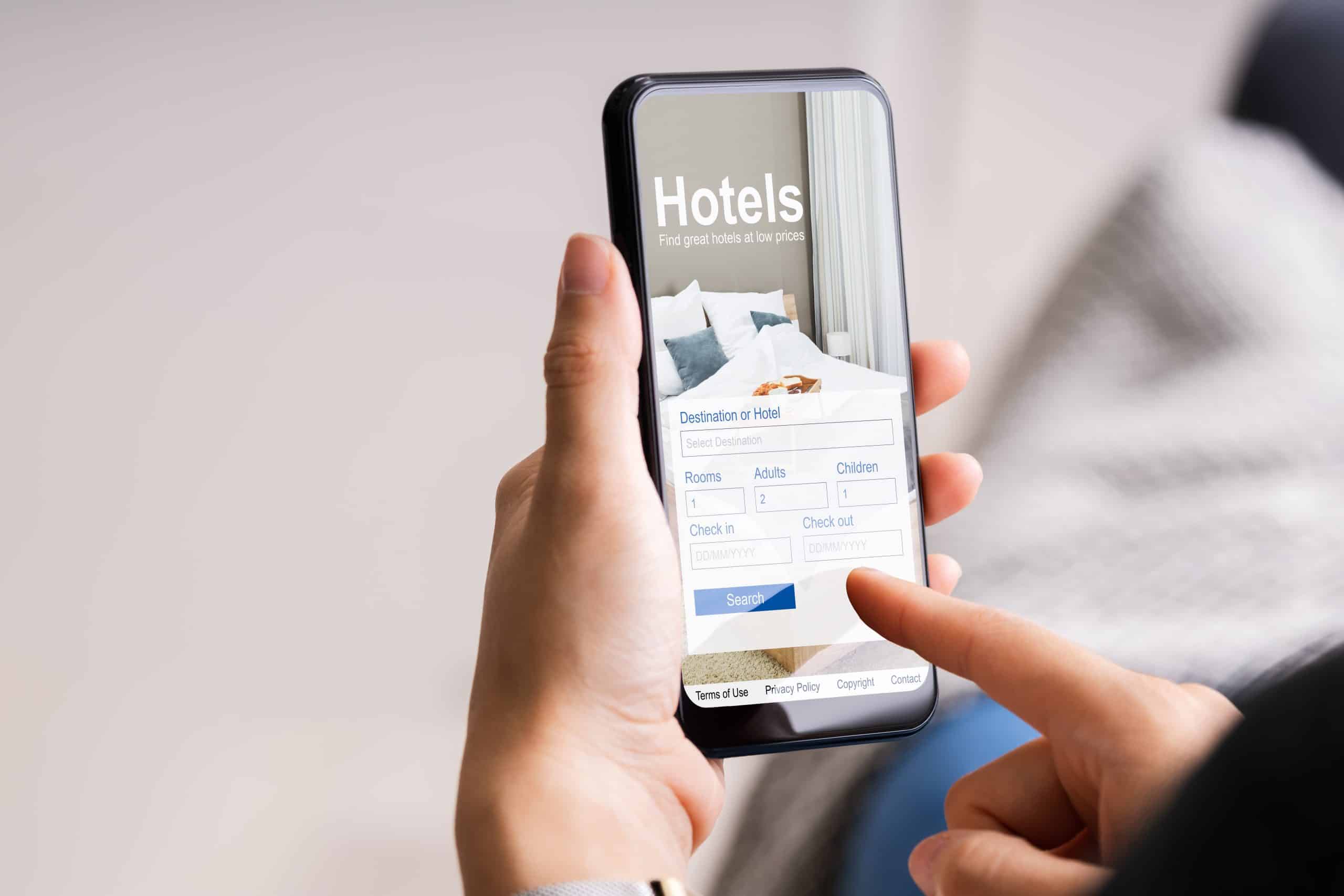A hotel booking engine is more than just a reservation tool. Traditionally, these platforms were built for speed, convenience, and transaction volume. Their core function was to move a customer from search to purchase as efficiently as possible.
That model still serves a purpose, especially for online travel agencies and direct-to-consumer platforms. However, it is not enough for organizations focused on long-term relationships.
Travel clubs, membership groups, credit unions, timeshare companies, and loyalty-driven businesses require something more. They need hotel booking engine software that creates meaningful engagement, drives retention, and delivers personalized value with every interaction.
The next generation of hotel booking technology is not just about facilitating a transaction. It is about building a connection.
The Problem with Most Hotel Booking Engines
Most booking engines are designed for immediacy. They emphasize availability, price, and convenience. Those elements are important, but they do not cultivate loyalty.
Consider the typical hotel booking experience:
- A user searches for a location and dates
- The platform returns a long list of hotels
- The user filters by price or star rating
- A selection is made, payment is processed, and a confirmation is sent
The interaction is transactional and impersonal. There is little to no follow-up. There are no targeted rewards. The customer has no reason to return to that same platform for future travel.
This is a missed opportunity for brands trying to retain customers, increase share of wallet, or compete with major OTAs.
Why Loyalty Matters in Hotel Bookings
Customer acquisition is expensive. Retaining customers is more cost-effective and more profitable. According to research from Bain & Company, increasing customer retention by just 5 percent can boost profits by 25-95%.
In travel, loyalty has always been emotional. People remember positive travel experiences, especially those that feel personalized or exclusive. The booking engine is one of the earliest touchpoints in that journey. If it feels generic, the entire experience starts on a weak foundation.
Loyalty-driven booking tools must:
- Recognize returning users and tailor content to their preferences
- Offer exclusive rates or benefits that are not available elsewhere
- Integrate rewards or points directly into the booking flow
- Deliver incentives that reinforce repeat behavior
When a booking engine creates visible value for the user, it encourages return visits and strengthens brand attachment.
The Shift Toward Personalization
Modern hotel booking engine software must incorporate personalization at every step. This means surfacing hotel options based on previous searches or booking history, adjusting offers in real time using intelligent algorithms, and storing traveler preferences such as room type, favorite hotel brands, or specific amenities.
Effective personalization also includes location-aware content. A platform that can suggest hotels near events, attractions, or a traveler’s current location becomes more than a booking tool—it becomes a digital concierge. When the platform feels responsive and intuitive, it creates a sense of recognition that strengthens trust and repeat engagement.
A personalized experience transforms the booking process from something routine into something curated. That shift is what separates a transactional tool from a loyalty engine.
Integrating Rewards and Flexible Incentives
Loyalty is not just about recognizing users. It is about rewarding them in meaningful ways. Booking engine software that supports this can create a powerful competitive advantage.
Effective reward integration includes:
- The ability to apply loyalty points or credits at checkout
- Displaying member-exclusive pricing next to public rates
- Enabling bonus point promotions or tier-based upgrades
- Highlighting how much a user saved by booking through the platform
Flexibility is also key. Not every customer wants to redeem points the same way. Some prefer discounts on bookings, while others want added perks such as breakfast or late checkout. Offering options helps appeal to a broader audience and enhances satisfaction.

Mobile Optimization and On-the-Go Engagement
Mobile-first experiences are no longer optional. Booking engines must be fully responsive and optimized for speed, particularly because many last-minute bookings and in-destination hotel searches happen on smartphones.
An effective mobile experience includes features that reduce friction for the user. One-click rebooking makes the process faster for frequent travelers. In-app notifications can alert users to price drops or deliver timely, personalized offers. Secure login options such as Touch ID or facial recognition add convenience without compromising safety. Location-based prompts help users discover nearby hotels or experiences relevant to their current destination.
Mobile engagement goes beyond simply completing a reservation. When the experience is designed with the entire traveler journey in mind, it becomes a powerful channel for promoting upgrades, encouraging add-ons, and increasing overall spend.
Real-Time Data, Analytics, and Business Intelligence
The value of a booking engine should not end at the reservation. Travel brands and membership organizations need data to understand how users behave, which promotions are effective, and where friction is costing them conversions. A loyalty-driven booking engine must provide real-time access to performance metrics and customer insights.
Business intelligence capabilities should allow teams to track revenue per booking, frequency of use by member segment, average order value, and booking lead time. This information helps marketers shape campaigns that drive repeat use, while enabling operations teams to manage inventory, pricing strategies, and customer service resources more efficiently.
Integrating this data with existing customer relationship management tools creates a clearer view of the customer journey. When booking behavior connects with loyalty activity and campaign response rates, brands can personalize outreach with much greater accuracy. Booking engine software that supports this level of insight is not just a technology solution—it becomes part of the strategic toolkit.
Supporting Omnichannel Communication
Loyalty does not start and end with a web session. The best booking experiences are those that carry across platforms, devices, and human interactions. Travelers want the option to start a booking on a mobile device, ask a question through a chatbot, and finalize the transaction by phone or with a customer service agent.
To deliver this, the booking engine must support unified profiles and consistent content across all channels. Room availability, pricing, and promotions must match regardless of where the member interacts. If a customer saves a favorite property in one place, it should appear everywhere else they access their account.
True omnichannel support allows for continuity. Travelers do not need to repeat information or re-enter preferences. That seamless experience is what makes your brand feel cohesive. It also positions your booking platform as a trusted source, not just a tool for convenience.
Closing the Loyalty Loop
When a booking engine is designed to build loyalty, it continues to deliver value after the reservation is complete. A transaction should trigger communication that supports the trip, enhances the experience, and encourages future bookings. This is where loyalty is reinforced.
Confirmation pages can suggest local tours or travel add-ons. Pre-departure emails can offer upgrades or reminders about flexible check-in options. Post-stay messages can request feedback or share personalized recommendations for a future trip. Every one of these interactions strengthens the relationship between the traveler and your brand.
Loyalty is not a program or a point balance. It is a feeling of recognition and reward. Booking engine software that supports this journey—before, during, and after the stay—becomes a driver of both retention and revenue.
The Loyalty-Driven Booking Engine Is Not a Concept. It Is a Requirement.
If your business depends on ongoing engagement, hotel bookings can’t just be about the transaction. Your booking engine should help build loyalty, not just confirm reservations. It should deliver real value, recognize your members, and keep them coming back—because that’s what drives growth.
This kind of experience is no longer a nice-to-have. It’s expected. Whether you’re a retailer offering exclusive travel perks, a financial institution looking to boost cardholder engagement, or a membership brand competing for attention, your hotel strategy needs to do more.
Learn how your booking experience can connect with a broader rewards strategy in our breakdown of unique offerings in travel rewards programs. It’s a deeper look at how elevated benefits and smarter redemption options can turn travel into a lasting loyalty engine.
Frequently Asked Questions About Hotel Booking Engines
What is hotel booking engine software?
Hotel booking engine software is a platform that enables users to search, select, and book hotel accommodations online. Modern solutions are designed to go beyond transactions, powering loyalty, personalization, and member engagement.
How does a loyalty-driven booking engine differ from traditional systems?
Traditional engines focus on price and speed. Loyalty-driven platforms add value through personalization, member recognition, exclusive pricing, and integrated reward redemptions.
Why is personalization important in hotel bookings?
Personalization improves engagement and retention. When users see recommendations based on past behavior, preferences, or location, they feel recognized and are more likely to book again.
How do hotel booking engines support loyalty rewards and member incentives?
Loyalty-driven booking engines enable members to redeem points or savings credits at checkout, view exclusive rates, and receive tailored offers. These features add visible value and reinforce return behavior.
How does a mobile-optimized booking engine support loyalty?
Mobile-first engines allow on-the-go booking, real-time offers, and personalized prompts. Features like one-click rebooking and location-based suggestions turn mobile into a loyalty channel.








